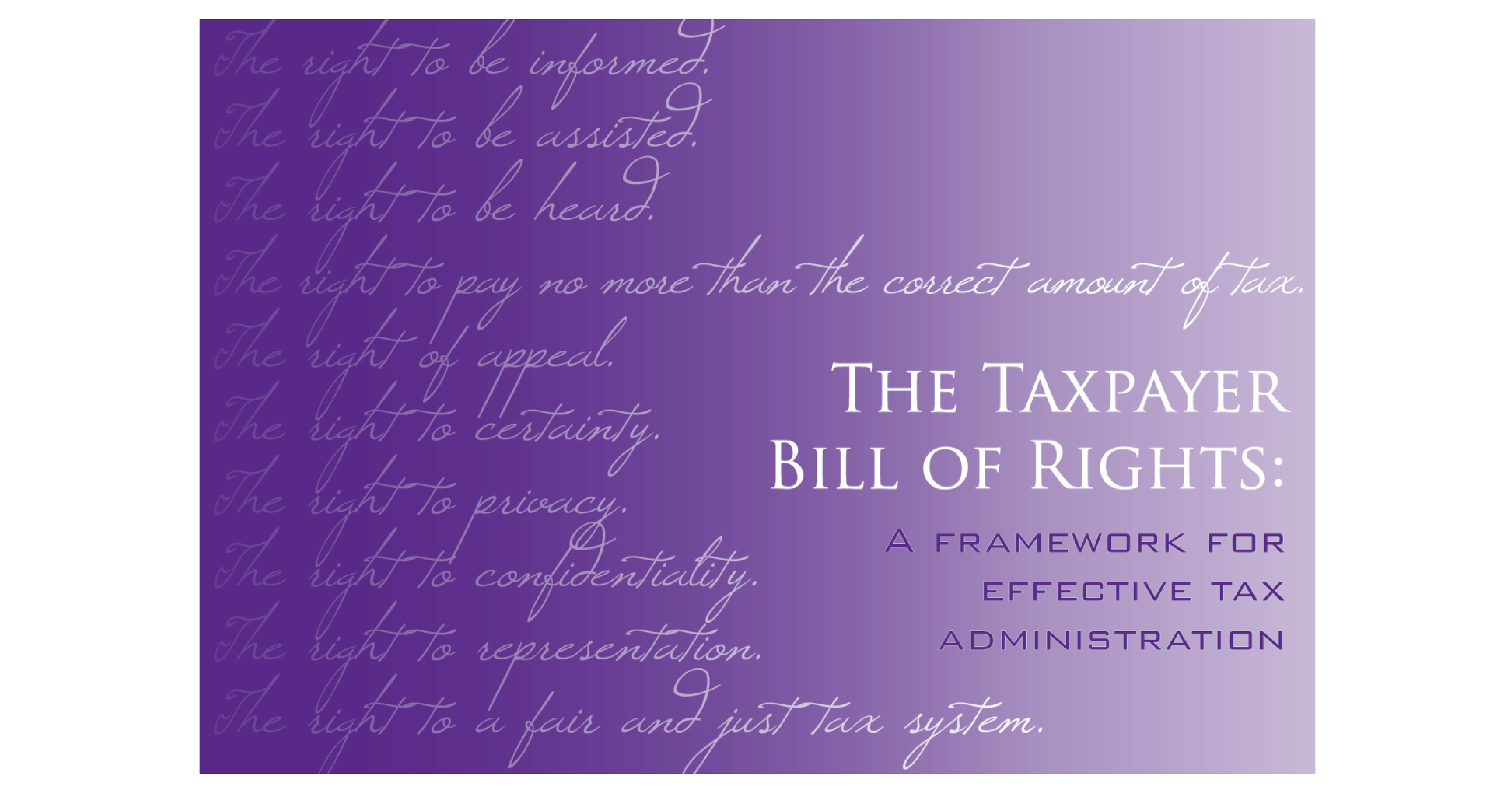As you’re probably aware, the IRS tends not to be popular with the American public.
Over the years, stories have circulated through the news media and social media about IRS harassments, unfair audits, and penalties. And when you add in the stereotypical image of an uncaring bureaucratic staff, it’s apparent the IRS has a major PR problem.
While it might not be as apparent with us taxpayers way down here in St. Augustine, Florida, those IRS folks up in Washington work for us. And we should expect good service from our employees.
That mindset led to the creation of the Taxpayer Bill of Rights in 2014. This bill of rights lists 10 guarantees and protections you—as taxpayers—should be aware of when dealing with the IRS.
Without Further Ado, Let’s Look at Your Taxpayer Bill of Rights
- The Right to Be Informed
IRS Description:Taxpayers have the right to know what they need to do to comply with the tax laws. They are entitled to clear explanations of the laws and IRS procedures in all tax forms, instructions, publications, notices, and correspondence. They have the right to be informed of IRS decisions about their tax accounts and to receive clear explanations of the outcomes.
- The Right to Quality Service
IRS Description:Taxpayers have the right to receive prompt, courteous, and professional assistance in their dealings with the IRS, to be spoken to in a way they can easily understand, to receive clear and easily understandable communications from the IRS, and to speak to a supervisor about inadequate service.
- The Right to Pay No More than the Correct Amount of Tax
IRS Description:Taxpayers have the right to pay only the amount of tax legally due, including interest and penalties, and to have the IRS apply all tax payments properly.
- The Right to Challenge IRS’s Position and Be Heard
IRS Description:Taxpayers have the right to raise objections and provide additional documentation in response to formal IRS actions or proposed actions, to expect that the IRS will consider their timely objections and documentation promptly and fairly, and to receive a response if the IRS does not agree with their position.
- The Right to Appeal an IRS Decision in an Independent Forum
IRS Description:Taxpayers are entitled to a fair and impartial administrative appeal of most IRS decisions, including many penalties, and have the right to receive a written response regarding the Office of Appeals’ decision. Taxpayers generally have the right to take their cases to court.
- The Right to Finality
IRS Description:Taxpayers have the right to know the maximum amount of time they have to challenge the IRS’s position as well as the maximum amount of time the IRS has to audit a particular tax year or collect a tax debt. Taxpayers have the right to know when the IRS has finished an audit.
- The Right to Privacy
IRS Description:Taxpayers have the right to expect that any IRS inquiry, examination, or enforcement action will comply with the law and be no more intrusive than necessary, and will respect all due process rights, including search and seizure protections and will provide, where applicable, a collection due process hearing.
- The Right to Confidentiality
IRS Description:Taxpayers have the right to expect that any information they provide to the IRS will not be disclosed unless authorized by the taxpayer or by law. Taxpayers have the right to expect appropriate action will be taken against employees, return preparers, and others who wrongfully use or disclose taxpayer return information.
- The Right to Retain Representation
IRS Description:Taxpayers have the right to retain an authorized representative of their choice to represent them in their dealings with the IRS. Taxpayers have the right to seek assistance from a Low Income Taxpayer Clinic if they cannot afford representation.
- The Right to a Fair and Just Tax System
IRS Description:Taxpayers have the right to expect the tax system to consider facts and circumstances that might affect their underlying liabilities, ability to pay, or ability to provide information timely. Taxpayers have the right to receive assistance from the Taxpayer Advocate Service if they are experiencing financial difficulty or if the IRS has not resolved their tax issues properly and timely through its normal channels.
Taxpayer Bill of Rights Empowers You to Demand Fair Treatment
When dealing with the IRS regarding your tax issues, it’s important to understand that these rights are recognized by the IRS—not granted by them. Meaning these are your rights by law and the IRS is obligated to follow them.
The bill of rights provides you with a bit of leverage to push back if you feel you’re being unreasonably treated.
If you ever have any questions regarding the Taxpayer Bill of Rights, give us call at (904) 429-4588. We’ll see if we can help you out or guide you in the right direction for assistance.

